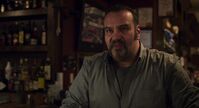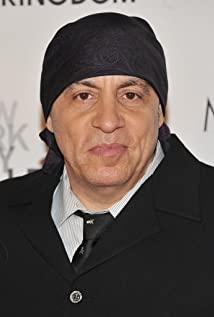Many years ago, my junior high school Chinese teacher told us such a story in class:
(Because of the long lapse of time, the details of the story are a bit vague in my mind, but I still remember the general meaning)
In the United Kingdom during the Industrial Revolution, on a working day early in the morning, on the platform of an old railway station.
A little boy is selling newspapers in his hands to passing travelers,
At this moment, a man poked his head out of the train window waiting to depart by the platform.
Waving a coin in his hand, the little boy selling the newspaper shouted: "Hi! Bring me a newspaper!"
The little boy hurried to the window where the man was,
Because of his short stature, he had to padded his feet and struggled to lift the newspaper to the position of the train window.
The man reached out and took the newspaper.
But instead of tossing the coin in his hand to the little boy, he continued to hold the coin and said to the little boy in a playful tone:
"Come on! Jump up! If you can get this coin, I will give it to you!"
Obviously, this is impossible for a little boy.
But he still tried several times.
Just when he was so tired, panting, and sweating profusely,
The train started.
The little boy sat down on the ground disappointedly, crying loudly as he watched the train moving away.
After a while, a gentleman walked over. He leaned down kindly and asked the little boy: "Boy, what's the matter with you?"
With a crying voice, the little boy told the gentleman what had just happened.
The gentleman stood up and said to the little boy in a very firm tone:
"Son, don’t cry, my carriage is just outside the station, and I will drive the carriage with my Mr. coachman to chase that guy.
Be sure to ask him to pay you back the money owed to you! "
After speaking, the gentleman turned and strode away.
After a while,
The gentleman returned happily, holding a shiny coin in his hand.
"Child, take it, this guy entrusted me to return it to you."
then,
The gentleman gave the little boy a vivid description of how he and his coachman overtook the train and found the guy who teased the little boy.
How did he teach him a tough lesson, and how did the guy express his repentance and entrust the gentleman to pay him back.
The end of the story,
The little boy said to the gentleman a grateful "Thank you!"
Then left happily.
——————————————————————————————————————————
I still remember what my teacher said after telling this story in class:
Think about it, everyone, it's impossible for a carriage to overtake a train.
So where did the coin that the gentleman gave the little boy come from?
The answer is easy to think of, it belongs to the gentleman himself.
So, since the gentleman knew that he could never catch up to the train, why did he put so much effort in "acting" this "drama" in front of the little boy?
Isn’t it enough to just take a coin from your pocket and give it to the little boy?
Because he didn’t want this little thing to hurt the boy’s heart,
He wanted to convince the little boy that there are still people in this world who are willing to stand up and uphold justice.
He wanted to use kindness and hope to guide the little boy to a better future.
——————————————————————————————————————————
When we continue to grow, continue to mature, and continue to age,
The dreams of my youth gradually faded, replaced by all kinds of sleek, intrigue, decadent depression.
Can we truly experience happiness and happiness without a trace of impurities?
In the movie, Santa Claus can fly freely without a hat.
But he just told Teddy,
That hat is very important to me. Without a hat, I would not be able to complete the task of delivering gifts on Christmas Eve.
The purpose is to let Teddy regain his recognition of his own value and rekindle his hope for a better life in the process of "helping" himself.
Little sister Katie is passionate, innocent, and cheerful from beginning to end, constantly encouraging and restraining her brother at the same time.
She is the embodiment of kindness and hope in each of us.
At the end of the film, Teddy's Christmas wish is finally revealed: I hope I can see my father who died in the fire fighting again.
From Santa’s reply, we can know that this wish cannot be achieved.
In Western culture, immortality and resurrection are not as desirable as in our Chinese culture.
Immortality is often accompanied by curses (such as "The Last Wizard Hunter" starring Van Diesel),
The resurrection is even more terrifying (such as "The Bane of Monkey Claw" by Jacobs, "Harry Potter" by JK Rowling).
Therefore, the director and screenwriter did not force the audience to have a very reluctant happy ending.
Instead, Teddy ingeniously made Teddy see the phantom of his father through the Christmas tree ornament that Santa Claus attached to the letter-a golden ball.
In just a few seconds when that wish was "fulfilled", Teddy whispered to his father: I'm proud of you.
The phantom of the father also said the same thing to Teddy warmly: I'm proud of you.
In fact, what Teddy saw was himself.
Little sister Katie once said to Teddy: I can always see the shadow of my father from you.
Save the Christmas note,
In fact, it is our heart that saves us.
——————————————————————————————————————————
This article is dedicated to my dead father,
I am proud of you.
And wish all readers a Merry Christmas on the 25th of this month!
Written in the living room at home on December 1, 2018
View more about The Christmas Chronicles reviews











